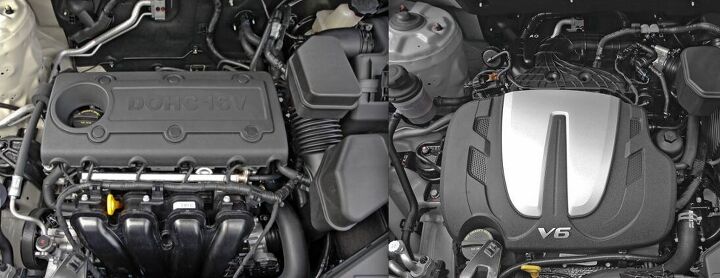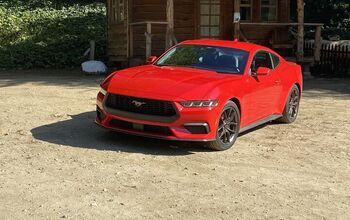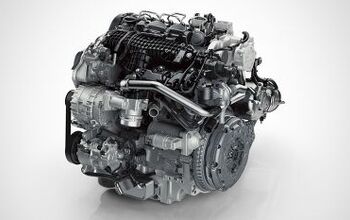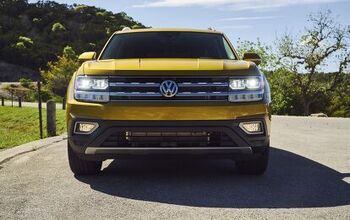V6 Or Four-Cylinder?
Do you buy the base four-cylinder, or upgrade to a V6? For most car-purchasing decisions, this is an important question to think through. And usually the trade-offs are simple: you can pay more for more power and less efficiency with the V6, or save money and gas with the four-potter. And with fuel prices staying volatile, four-cylinder engines are becoming all the more popular: for example, Hyundai’s new Sonata has been engineered to be four-cylinder only. But according to Consumer Reports, the differences between the V6 and the four-cylinder option aren’t always as clear as you might expect.
Interestingly, CR’s example of a strange relationship between base and upgraded engine options also comes from South Korea, in the form of Kia’s new Sorento CUV. CR explains:
We bought two 2011 Sorentos: an EX with the 3.5-liter V6 engine and an LX with the 2.4-liter four cylinder, both AWD. In our fuel economy tests, they both achieved 20 mpg overall. Break it down, and they both tied at 14 mpg city and 26 mpg highway…
…While the numbers are stacked against it, I found that in the right circumstances, it is possible to get better mileage out of the four-cylinder Sorento. On my longish, modest speed rural-highway commute, I observed more than 25 mpg in the four-cylinder version, versus just 21 in the V6. Of course, results may vary depending on routes, speed, and driving style.
Based on our formal testing, we got near-matching fuel economy and consequently calculate similar annual fuel cost: $1,685 for the four cylinder, versus $1,720 for the V6. That $35 a year difference won’t amount to much though, compared with the higher $5,800 purchase price difference. ($26,590 versus $32,390).
The Sorento is the only new car in our current test that defies conventional wisdom. The next closest model I could find is the Toyota RAV4, which gets 22 mpg overall with the V6 engine, and 23 mpg with the four cylinder.
CR’s assessment is that four-pot engines have to work much harder than a V6 to move a large vehicle like the Sorento. The four-banger might be more inherently efficient, but in practice it has to be used far less efficiently to maintain good progress. Its lower gearing further reduces its efficiency advantages. And though nearly $6k to upgrade to the V6 is a steep jump, it seems that in the case of the Sorento at least, it’s worth stretching for. After all, who would rather have 22 lbs per horsepower instead of 15 lbs per horsepower if there’s no efficiency bonus?
But here’s where things get psychological: if you have the V6’s grunt will you be tempted to drive more… enthusiastically? After all, with “adequate” four-cylinder power, chances are that you’ll be lulled into a more sedate pace compared to a V6. With more power, the temptation to drive faster and therefore less efficiently has to be part of the equation… and it’s one that will never show up on an EPA test.
More by Edward Niedermeyer
Latest Car Reviews
Read moreLatest Product Reviews
Read moreRecent Comments
- Formula m How many Hyundai and Kia’s do not have the original engine block it left the factory with 10yrs prior?
- 1995 SC I will say that year 29 has been a little spendy on my car (Motor Mounts, Injectors and a Supercharger Service since it had to come off for the injectors, ABS Pump and the tool to cycle the valves to bleed the system, Front Calipers, rear pinion seal, transmission service with a new pan that has a drain, a gaggle of capacitors to fix the ride control module and a replacement amplifier for the stereo. Still needs an exhaust manifold gasket. The front end got serviced in year 28. On the plus side blank cassettes are increasingly easy to find so I have a solid collection of 90 minute playlists.
- MaintenanceCosts My own experiences with, well, maintenance costs:Chevy Bolt, ownership from new to 4.5 years, ~$400*Toyota Highlander Hybrid, ownership from 3.5 to 8 years, ~$2400BMW 335i Convertible, ownership from 11.5 to 13 years, ~$1200Acura Legend, ownership from 20 to 29 years, ~$11,500***Includes a new 12V battery and a set of wiper blades. In fairness, bigger bills for coolant and tire replacement are coming in year 5.**Includes replacement of all rubber parts, rebuild of entire suspension and steering system, and conversion of car to OEM 16" wheel set, among other things
- Jeff Tesla should not be allowed to call its system Full Self-Driving. Very dangerous and misleading.
- Slavuta America, the evil totalitarian police state


































Comments
Join the conversation
V6 or turbo 4, nothing else will satisfy.
For me the choice of engine boils down to how well it matches the vehicle's size and character. There is little point in stuffing a V6 into a 3,000 pound FWD sedan, when a smooth-running 200hp 4-banger is available. All the V6 does is waste rubber, and make the vehicle handle like a shopping cart with one wheel seized. Conversely, there is little point in stuffing a 4-banger into a 4,400 pound crossover. You won't save any fuel buzzing down the highway at 3,000 rpm, nor will you save any money at resale time.